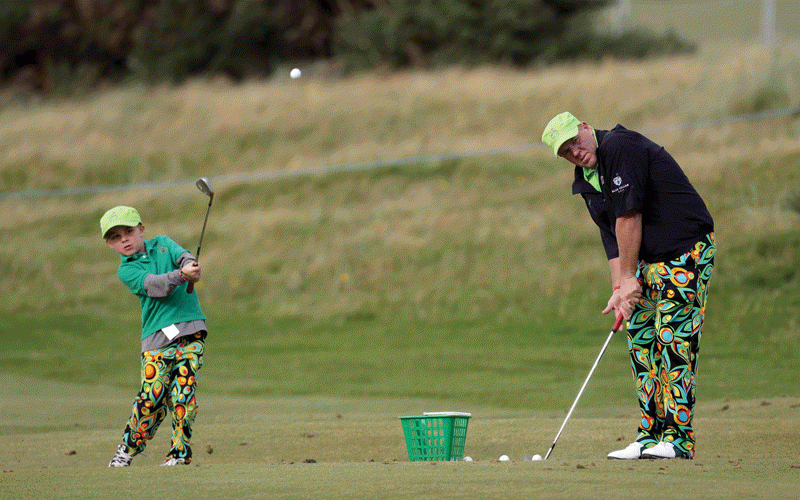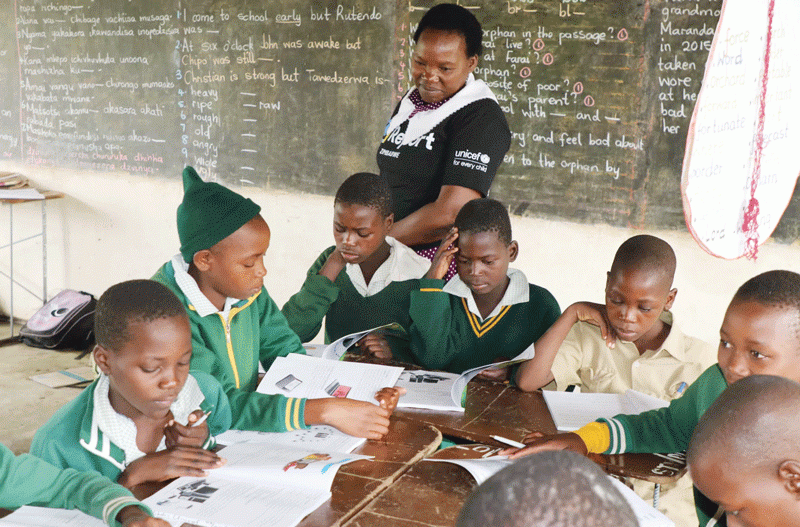
One of the greatest thrills in life for a teenage boy is to play sport against his father – and to try and beat him.
The competitive instinct kicks in – what son does not want to do that? The teenager will also want to flex his muscles and show that he is stronger than his father, so he will wind himself up for a huge drive, which generally leaves him scrambling for the rest of the hole from the rough, trees and other wayside hazards.
When the pair meet up again at the green and the father putts out to claim another hole, he would mutter quietly the age-old truism of golf: ‘you drive for show, but you putt for dough’.
Loosely translated, it means that we can put on a big show as much as we like, with the fancy long drives, but what really matters is whether we can do the small things well – at the end of the day a 350 metre drive counts for the same number of shots as a 3cm putt.
On one occasion, a father and son friendly game was shared with a very competitive friend of the son who was desperately keen to impress the older man.
As they walked up one fairway to where their drives had landed, the father noticed the friend’s ball had landed in a deep divot and as he walked past it, he simply knocked it out of the divot with his toes without breaking stride and without the friend noticing.
The father did not do it to be seen, but he knew how much the friend wanted to impress him and he simply tried to make it easier for him. No fuss, no glory, no attention.
Then, there is the story of Muhammad Ali who was flying on a plane when the aircraft ran into severe turbulence and was shaking so badly that the passengers were required to put on their seat belts. All passengers complied except for Ali.
- Feature : “New flights a sign of tourism recovery”
- Beware of corporate psychopaths in leadership positions
- Chegutu residents seek ED intervention
- Mutare man nabbed for smuggling
Keep Reading
Noticing this, a stewardess approached him and asked him to fasten his seat belt. Ali replied, ‘Superman don’t need no seat belt.’
The stewardess took one look at him and replied, ‘Superman don’t need no airplane either!’
These illustrations perhaps show that modern society has produced generations who have a false view of their importance and are obsessed with themselves and with being seen and acknowledged.
The celebrity culture is so strong with people just wanting to be a celebrity – people want everyone to know what they have done, they crave the limelight and boast of their exploits.
Look at sportsman, especially footballers, when they score – it’s all about ‘how great I am’! Perhaps it started with Muhammad Ali when he began to proclaim he was the greatest and we all thought it funny the way he did it, but such boasting does not help.
Humility is an attitude we should promote and develop.
There is great benefit in praise, reward and encouragement but it is also risky, as it can become the end rather than the means to the end, if it is not used wisely.
People of all ages tend only to do things nowadays if they get something from it.
Missing in action often, unfortunately, is the act of humility, of grace, of selflessness, of integrity, of doing something good without being noticed.
A wise teacher once spoke of how such people who crave attention and glory will get their reward there and then, but such reward is not lasting or fulfilling. Rather we are encouraged to do acts of kindness in secret.
The mistake we make is to think that the loud ones, the visible ones, are the right ones or the good ones. They might simply be the ones who want the attention.
Often the best teachers in a school are the quiet ones who do not seek attention; often the best parents are the ones who quietly get on and do things without looking for reward.
They are the ones who will do things before they are asked; they know what needs to be done because they have been listening instead of talking.
They are in fact embarrassed by attention because to them it was the obvious and necessary thing to do.
In a school community especially, we will do well to heed the warning, ‘drive for show, putt for dough’. It is the small hidden things that are more important.
As individuals, staff, parents, pupils, we will all do well to do the small things, unseen, unannounced, without looking for glory.
Not only must we heed it but we must promote it and teach it.
And to all those hidden heroes at school, hear this: you know who you are; you know why you do it; you know it had to be done; you know it is valued. That is all you need to know.
To all of us, hear this: let us begin to do things for our fellow humans without wanting people to know.
The beauty is not in the boast. When we grasp and teach that, it will provide a greater thrill than playing (and beating) a father at golf!
Tim Middleton is the executive director of the Association of Trust Schools [ATS]. The views expressed in this article, however, are solely those of the author in his private capacity and do not necessarily represent the views of the ATS.
email: ceo@atschisz.co.zw
website: www.atschisz










